Gross Motor Skills and Why do they Matter?
Over the past few years, there have been numerous reports about urging parents to take their children outdoors. On an institution level, more schools are adopting for 2-4 breaks during the school hours. All this subtly point to one single thing – Decline in Gross Motor Skills.
Our children are falling back in gross motor skills, something so native and primitive to child development that our previous generations never had to bother about them. Motor skills just magically developed, for them.
But in our case, not really so. So what has really changed? Several things. Children now spend more time indoors than any of the previous generations. In fact they are being called the ‘Indoor Generation’.
Another factor is the lack of safe spaces where children can freely play. You cannot really afford a safe playground where your little one can go and play all by herself, unsupervised. This coupled with busier schedule has reduced the time to spend on practicing these quintessential gross motor skills.
Increased emphasis on structured activities and academics has contributed to the drop as well. Parents and educators are more focused than ever in building ‘brains’ of young children, giving them less time to move around and play.

Use of devices and screen time has further reduced moment based play activities. It is not surprising to see that majority of children entering Kindergarten lack the requisite gross and fine motor skills.
All said and done but what’s the BIG deal, you might ask. Here are a few reasons Why Gross Motor Skills Matter:
1. Gross Motor skills are precursor to any kind of physical and brain development. There is a reason why the babies start with these skills right in the womb.

2. These motor skills are essential to carry out daily life activities like sitting straight, crawling, walking, dressing, eating. Basically all your everyday functions.
3. Motor skills develop from head to toe. Meaning that a baby first needs to learn to master the control of its head followed with trunk and then legs. It is after these gross motor skills have been mastered, children start with fine motor skills.
4. Gross motor skills are the essential link leading to social, cognitive, language and brain development in young children.
5. They are fundamental to healthy body and physical development of children.
6. With the effects of sitting being compared to that of ‘smoking’, Gross motor skills provide the necessary health benefits to children.
7. Gross motor skills help young children interpret and assimilate information about their environment. Thus, messaging their grey cells and laying foundation of their brain development.
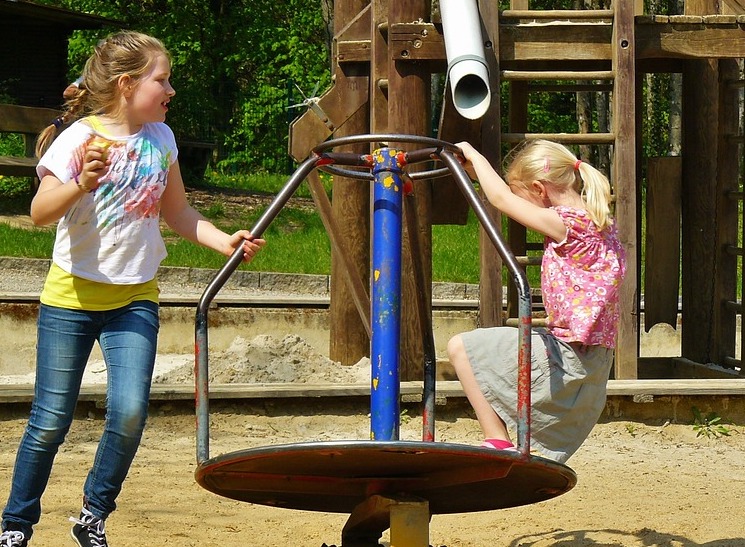
8. For older children, gross motor skills translate into play. Whether unstructured or a sport class, play is the necessary exercise all children (and adults) need to release good chemicals in their bodies and get rid of toxins.
9. Gross motor development is positively correlated with reading and writing skills.
10. Physical movement is the indispensable brain food. Engaging in physical activities provide your child’s brain with oxygen and glucose, which help brain to develop better and optimize its functions
You cannot possibly imagine a child without these essential life skills, which lay the groundwork for other skills to develop. Now that you know why they really matter, let us understand what Gross Motor Skills really are and how we can neutralise their decline.
What are Gross Motor Skills?
Gross motor skills are the skills that require the large muscle movement of the body in a controlled and coordinated manner. For example: rolling, sitting, walking or catching a ball.
These skills require control over body parts to accomplish daily life activities. Gross motor skills are responsible for balance and coordination. Thus, they require coordination between the neurological system and muscles.
How Gross Motor Skills develop?
Gross Motor skills start developing with the first movements in the womb. After a baby is born, these skills develop over time starting from head. Babies first learn to control their heads and necks followed with torso control.
Once torso control, like the ability to sit, is in place babies start exploring their fingers and hand movements. Similarly, before they learn to walk, babies need to master movement of hip, thighs, legs before moving on to feet and toes.
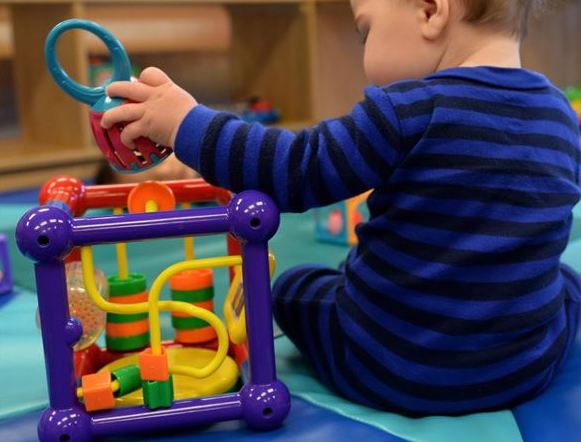
Once these fundamental gross motor skills are in place, children need lots of practice to strengthen their muscles to support these functions.
Types of Gross Motor Skills
Gross motor skills follow a sequence, building on motor skills acquired previously. These skills can be categorized into three forms:
1. Loco motor Skills: Like the name suggests, these gross motor skills help your child move from one place to another. These include:
- Crawling;
- Scooting;
- Walking;
- Running; and
- Jumping etc.
2. Non-loco motor Skills: These skills refer to body movements while remaining stationary at a place. For example when your child bends to pick up an object from the floor, she is relying on her non-loco motor skills. Examples include:
- Bending;
- Pushing;
- Pulling;
- Swaying;
- Turning;
- Stretching;
- Twisting;
- Leaning etc.
3. Manipulative Skills: These skills pertain to manipulation of objects like a ball. As these are Gross motor skills, these manipulative skills use larger muscles of the body like hand, wrist etc. A few examples of manipulative skills are:
- Throwing;
- Catching;
- Kicking;
- Rolling;
- Batting etc.
All these together lay the necessary foundation for gross motor skills that help children to move around and play easily. Lack of these basic motor abilities can manifest themselves in delayed bilateral integration and midline crossing activities.
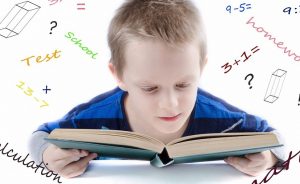
All these activities are very much essential for fine motor skills like writing, drawing as well as reading. Many a times, lack of strong gross motor skills is the underlying reason behind difficulty in writing. Thus, developing gross motor skills is imperative for whole development.
Activities to Develop Gross Motor Skills
To develop Gross Motor Skills, it is essential to strengthen large muscles in the body. Repeated practice and opportunity to play and move freely can greatly aid the process.
1. Ask your child to walk in a straight line. Stick masking tape on the floor and let your child practice marching on it to the tune “The Ants go marching”.
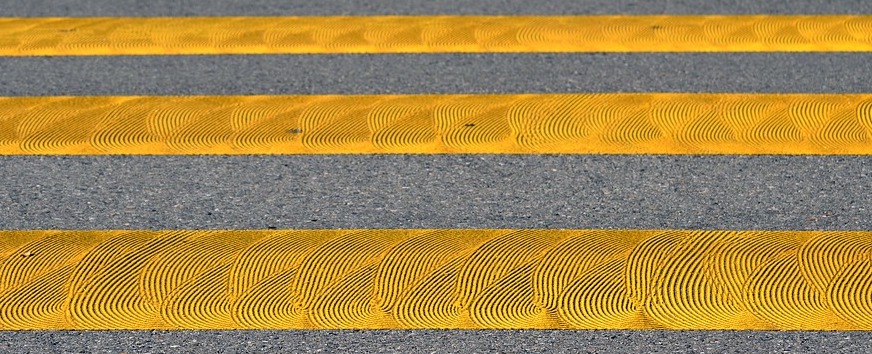
2. Play simple game of hopping, jumping, galloping, crawling to strengthen your little one’s loco motor skills. All you need is to call out the command and your child has to follow it. Simple and fun game to burn the excess energy in a constructive way.
3. Practice balancing with your child by walking on a straight line while keeping a book on your head. This one really gets little children all excited.
4. Make clockwise and anticlockwise circles with your child while holding hands. This activity will help your little one to develop awareness of her surrounding while moving. Space awareness is an important aspect of motor skills and helps us from banging into object and falling down.
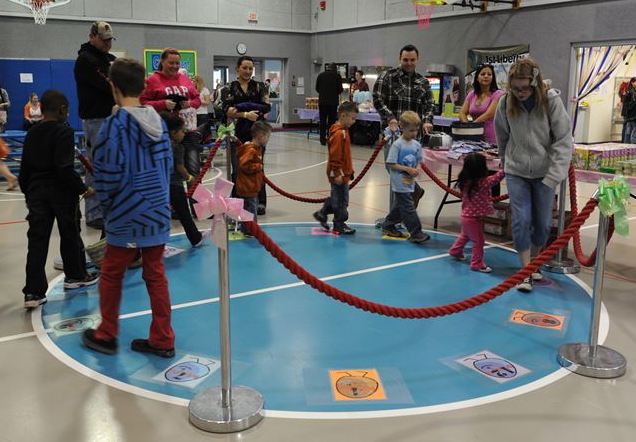
5. Engage in some space fun and walk like an astronaut. Paste kitchen sponge on your child’s footwear and let her practice walking like an astronaut.
6. Add fun to the motor skills practice through some musical kids activities or engaging in Horse Race. All you need to do is gallop like a horse and reach the finishing line.
7. Place some pillows and cushions on the floor and move around them without falling or bumping into them. This is an excellent way to build relationship awareness that is how to move with objects around.
8. Play freeze dance on your favorite tune. The moment the music is turned off, your child has to freeze in the exact same position.
9. One legged Kangaroo is another fun game to strengthen the motor skills. Your child acts like a one-legged Kangaroo and hops on zig-zag, straight or curved pattern.
10. Help your children practice alphabets by bending, stretching and twisting their body to form letters. If your child is alone, groove to Alphabet Yoga to strengthen and stretch the body muscles.
11. Invite your child to help you fold the sheets and make a little swing game out of it. Treat it like an ocean and make big/small waves with the sheet.
12. Classic ball games like rolling, throw and catch are great at building hand-eye coordination while developing the muscle tone of the body.
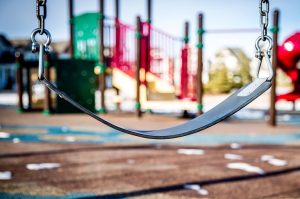 13. Visit a nearby park and let your child enjoy time of swings. Swings are great for honing gross motor-skills.
13. Visit a nearby park and let your child enjoy time of swings. Swings are great for honing gross motor-skills.
14. Do an Army March with your child. Remember to raise left hand with right foot and vice-versa. This is an excellent mid-line crossing activity.
15. Play with numbers or shapes by drawing a simple hopscotch and let your child have some serious learning while strengthening her larger muscles. It will help to build love for math early on in them.
16. Have a game of balloon tennis. Inflate a few balloons and let your child hit on them with a table tennis racket (or a book) to keep it afloat. The one who manages to keep the balloon afloat longest wins the game.
17. Dance to “Hockey-Pockey” song to practice sequential motor skills.
18. Make a bowling alley out of old plastic bottles and let your child practice her arm movements trying to toss a ball at the bottles.
19. Water Balloon toss is another excellent game to practice motor skills. Draw a makeshift target board on a wall/floor and let children practice their aiming skills.
20. Gym ball is another great tool to develop Gross Motor skills. Numerous activities can be done on the ball like sitting, rolling and pushing the ball.
Also Read:
Community Helpers Practical Life Activities for Kids
How Children Benefit from Math Art
What Happens When Parents Fight in Front of Children
Seriously Silly Jokes for Kids
Moral Stories for Kids to Help Build Character
The post Gross Motor Skills and Why do they Matter? appeared first on KidPillar.
